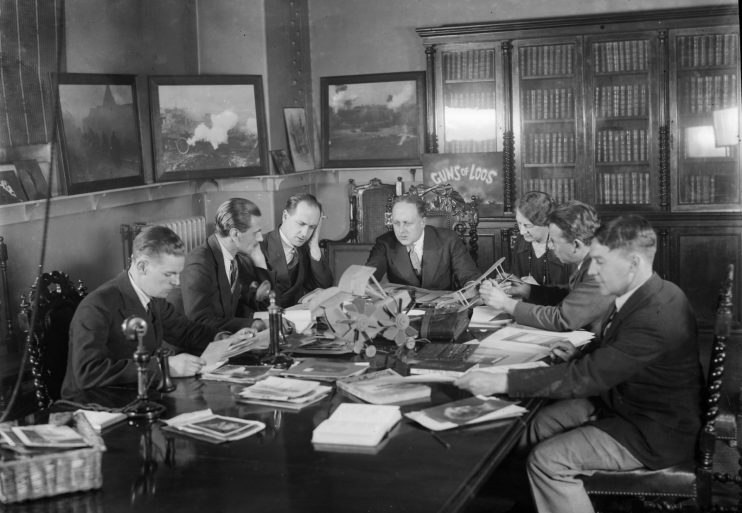Corporate Britain needs to wage war on jargon and speak like the people they are trying to serve

Gilbert and Sullivan are not primarily known as great gurus of business. But their 1893 operetta Utopia, Limited is an unlikely but rather acute insight into the idea of the modern corporation.
Improbably based on the Joint Stock Companies Act 1862, William Gilbert’s script and lyrics tell the story of corporate purpose, in words that were comprehensible to the audience of the late Victorian theatre, not all of whom would have been employed in business. There is a lesson in the lyrics and the lesson is that plain speaking about business is a lost art but that it matters.
Read more: Revealed: The office jargon buzzwords Londoners detest
Examples of terrible business writing, irritating jargon and strange locutions are everywhere. There is nobody, in normal life, who would call an additional point a “build” but nobody who doesn’t think it sounds incredibly clever in business.
Every banal event is a journey, every purchase is an experience, leadership is always authentic and redundant words are ubiquitous. Nobody works as a writer any more; they work in the writing space. Neither do they merely write; they do the writing piece which at least almost makes sense, unlike every other time “piece” is added pointlessly to the end of a sentence.
It is easy to dismiss this as silly talk that doesn’t really matter. So what if everyone talks about their customer base and has no idea how it differs from their customers?
Yet, at the same time as they using a strange private language, businesses are proclaiming their purpose as members of the society in which they are hosted. The message of most contemporary businesses is that they are more than mere machines for the production of profit. They are a participant in a thriving society. It therefore matters that they sound as if they belong. It is self-harming for a business to speak a foreign tongue.
To put it right is more difficult than it seems because obscure language is intrinsic to modern business and the boss class is committed to its odd native language. That is because the roots of business jargon run deep.
Business acquired a language of its own at the same time as it started to claim that it was a discipline separate from the rest of life. The huge growth of the business schools took place in the 1920s, influenced heavily by Frederick Taylor’s purportedly “scientific” management techniques and Henry Ford’s production lines. Taylor liked to walk round factories bearing a stopwatch, badgering workers to move faster. He was convinced that factories could run at optimal efficiency if only people were treated as units. He didn’t last long in many of the mills he worked in.
Read more: Businesses face a fresh tipping point of staff shortages and wage hikes
His ideas left a greater legacy, though. Peter Drucker said that Taylor, rather than Marx, ought to be ranked alongside Newton and Darwin as one of the three founders of modern thought. He was so influential that Charlie Chaplin made Taylor the target of Modern Times, his satire of industrial capitalism. Taylor himself had a long afterlife.
He taught on one of the first course at Harvard Business School and, before long, business was part of the curriculum.
The new subject rapidly developed its own vocabulary, as disciplines do.
At the same time Political Economy was being supplanted by the narrower field of Economics which, in turn, became more and more mathematical. Business and economics stopped being satisfied to be a branch of the arts and put in an application to be considered one of the sciences. The jargon that we know and mock today is the tongue of a new discipline, one which is separated in its habits and its modes of thought from the society in which it is hosted.
That is really not how most businesses think of themselves at all. Read the mission statements of all the major companies. In fact, I have read them already, so that you do not have to. They are all, essentially, the same and they all, quite rightly, want to be part of the society of which they think themselves a part. At the moment they don’t sound like they belong because they are speaking a language of their own devising. It’s time to revert to plain English, the language that we all have in common.
To Be Clear: A Style Guide for Business Writing by Philip Collins is published by Quercus on 3rd June (RRP £12.99)
Read more: The damning case against China over Covid-19 deserves proper attention